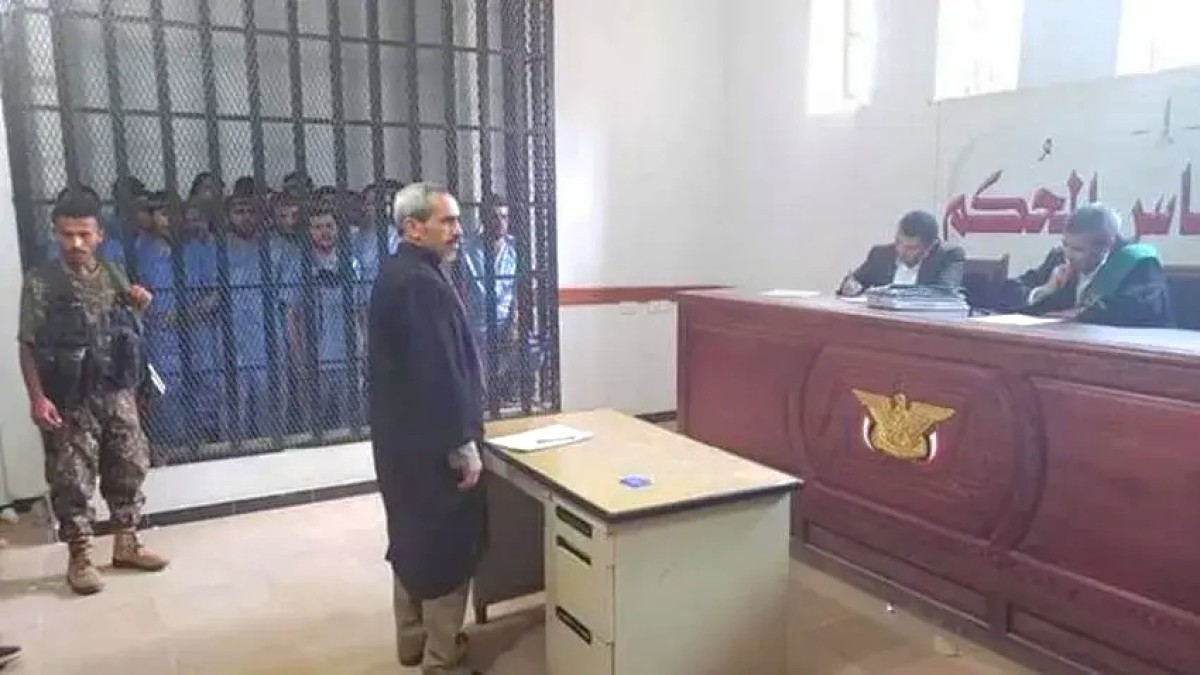Human rights report: 1,304 cases of kidnapping of academics by the Houthi militia since its coup


A human rights report entitled “Lights Behind Bars” revealed a tragic reality experienced by academics and teachers who found themselves the direct target of repression campaigns launched by the Houthi militia.
The report, prepared by journalist Abdel Baset Al-Shaja’ under the supervision of the Arab Council, presents a detailed picture of the repressive practices affecting intellectual and educational leaders, and presents before the international community compelling facts about violations that affected a wide segment of the country’s academic and educational elite.
The report said that since the outbreak of the conflict in Yemen, the Houthi group has resorted to targeting teachers and academics as part of its strategy to undermine the social and educational fabric, through kidnapping, forced disappearance, and torture, which have become daily tools in the hands of the group.
The report documents that dozens of these detainees were subjected to the worst types of torture in the illegal prisons of the Houthis, based on the testimonies of survivors who revealed that they were subjected to electric shocks, severe beatings, and hanging from their arms for long hours, in addition to continuous psychological violations aimed at breaking their will.
The report monitored the occurrence of 1,304 cases of kidnapping from September 2014 until June 2024, of which academics and teachers constituted 1,046 cases, distributed among the governorates of Sana’a, Hodeidah, Ibb, and Taiz. These numbers reveal a deliberate pattern of targeting this group with the aim of emptying educational institutions of their staff. Which threatens the future of future generations. The report also recorded two cases of death under torture, while others were released after suffering that continued for months and years inside. Houthi cells.
According to the report, the kidnappings were not random, but rather targeted prominent academic figures such as university deans, department heads, and educational experts, who had a prominent role in developing education in Yemen, as some of them faced sham trials that ended with death sentences being issued against them on fabricated charges. While others remain unaccounted for.
The report details painful details about the suffering of the families of the kidnapped, as these families faced financial blackmail and constant psychological pressure.
Testimony about blackmail
One of the testimonies indicates that one of the families paid large sums of money to release their son, but was surprised months later when he was re-arrested without warning, while other families were forced to leave their homes to escape constant threats, in the absence of any party capable of protecting them or providing assistance. Legal support for them.
The report concluded by calling for the immediate and unconditional release of all detained academics and teachers, and holding those responsible for these crimes, which blatantly violate human rights principles, accountable.
The report also stressed the necessity of providing medical and psychological care to those released, and working to reintegrate them into society to ensure the restoration of their vital role in building the future of Yemen.
The report, in its content, constitutes a cry for help to the international community and human rights organizations regarding the need for urgent intervention to protect what remains of the educational system in Yemen, which faces the risk of complete collapse due to these practices.